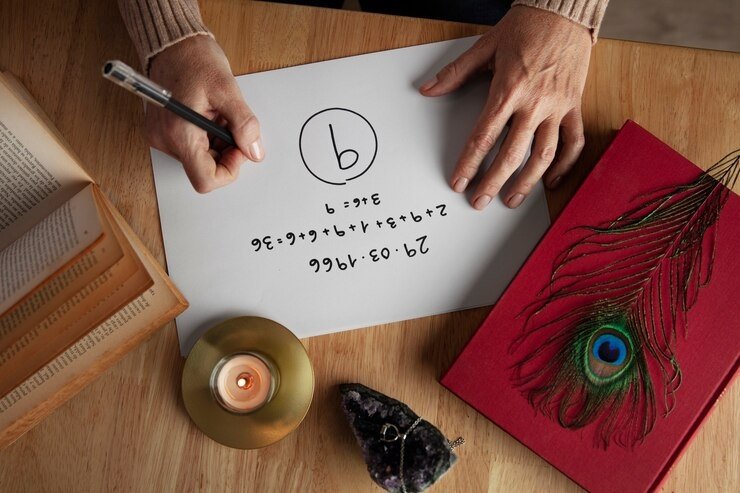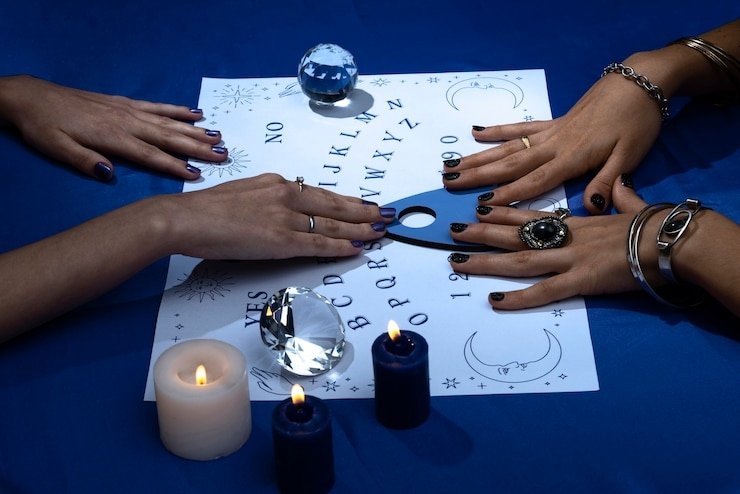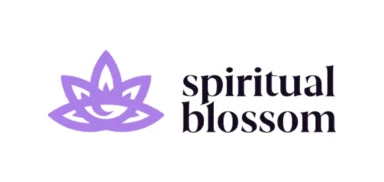To understand the distinction between psychic and intuitive abilities, focus on their origins and how they manifest. Psychic abilities often involve perceiving information beyond the physical senses, such as predicting future events or communicating with spirits. Intuitive abilities, on the other hand, rely on internal feelings, instincts, and subtle cues from your environment. While both can provide insights, they operate in fundamentally different ways.
Psychic experiences are typically more structured and may involve specific tools like tarot cards, pendulums, or mediumship. These abilities often feel external, as if the information is being received from an outside source. Intuition, however, is deeply personal and immediate. It’s that gut feeling or sudden knowing that guides decisions without conscious reasoning. Recognizing these differences helps you identify which type of insight you’re experiencing.
If you’re exploring these abilities, start by observing how you receive information. Do you see images, hear voices, or feel sensations that seem to come from outside yourself? These could indicate psychic tendencies. Alternatively, if you notice a strong internal pull or a sense of certainty without external input, you’re likely tapping into intuition. Both are valuable, but understanding their unique qualities allows you to use them more effectively in your daily life.
Psychic and Intuitive: Key Differences Explained
To distinguish between psychic and intuitive understanding, focus on their origins and how they manifest. Psychic abilities often involve external sources, such as receiving information from spirits, energy fields, or otherworldly entities. Intuition, on the other hand, stems from within, relying on your subconscious mind to process patterns, experiences, and subtle cues.
How Psychic Abilities Work
Psychic abilities typically require a heightened sensitivity to external energies. For example, a psychic might use tools like tarot cards, crystals, or pendulums to access information beyond the physical realm. These abilities can include clairvoyance (seeing visions), clairaudience (hearing messages), or telepathy (reading thoughts). Psychic insights often feel like they come from outside yourself, as if someone or something is guiding you.
How Intuition Works
Intuition operates through your internal awareness. It’s that gut feeling or sudden knowing without logical explanation. For instance, you might sense danger before it happens or feel drawn to a decision without understanding why. Intuition relies on your brain’s ability to process information quickly, drawing from past experiences and subtle environmental cues. It’s a natural skill everyone can develop with practice.
While psychic abilities often require training or special tools, intuition is accessible to anyone. To strengthen your intuition, pay attention to your body’s signals, practice mindfulness, and trust your instincts. For psychic development, consider working with a mentor or exploring techniques like meditation to connect with external energies.
Understanding these differences helps you choose the right approach for your needs. If you seek external guidance, psychic methods might be more suitable. If you prefer relying on your inner wisdom, focus on honing your intuition.
What Is the Source of Psychic and Intuitive Abilities?
Psychic and intuitive abilities stem from different origins, each rooted in unique aspects of human consciousness. Psychic abilities often connect to external energies or unseen forces, while intuition arises from internal processing and subconscious knowledge. Understanding these sources helps clarify how they function and how you can develop them.
Psychic abilities are frequently linked to heightened sensitivity to external stimuli. Many believe these skills come from tapping into universal energy fields, spiritual guides, or even the collective unconscious. For example, mediums often describe receiving messages from spirits, while clairvoyants may perceive images or symbols from beyond their immediate environment. These abilities are often cultivated through practices like meditation, energy work, or divination tools such as tarot cards.
Intuitive abilities, on the other hand, are deeply personal and internal. They rely on your subconscious mind processing vast amounts of information, often faster than your conscious mind can comprehend. This might include subtle cues from body language, past experiences, or patterns you’ve observed over time. Intuition is often described as a “gut feeling” because it bypasses logical reasoning and emerges as a sudden insight or knowing.
To better understand the differences, consider the following table:
| Source | Psychic Abilities | Intuitive Abilities |
|---|---|---|
| Origin | External energies, spiritual connections, or universal fields | Internal subconscious processing and personal experiences |
| Development | Meditation, energy work, divination tools | Self-awareness, mindfulness, pattern recognition |
| Experience | Messages from spirits, visions, or external symbols | Gut feelings, sudden insights, or emotional responses |
Both psychic and intuitive abilities can be strengthened with practice. For psychic skills, focus on enhancing your sensitivity to external energies through regular meditation or working with tools like crystals. For intuition, pay attention to your body’s signals and reflect on past decisions to recognize patterns. By understanding their sources, you can better harness these abilities in your daily life.
How Do Psychic and Intuitive Insights Differ in Practice?
Psychic insights often come through external tools or heightened sensory perception, such as tarot cards, crystal balls, or clairvoyance. These methods rely on interpreting symbols, energies, or messages from outside sources. For example, a psychic might use a tarot spread to reveal patterns in your life or connect with spirits to provide guidance. The process is structured and often requires a specific environment or tools to access information.
Intuitive Insights: Internal and Immediate
Intuitive insights, on the other hand, arise from within. They are immediate, gut feelings or sudden realizations that don’t depend on external aids. For instance, you might sense a decision is right without knowing why, or feel a strong pull toward a particular path. Intuition is often described as a quiet, inner voice that guides you naturally, without the need for rituals or tools.
Practical Applications
In practice, psychic insights are sought for specific answers or predictions, like career moves or relationship advice. Intuitive insights, however, are more about personal alignment and self-trust. For example, you might consult a psychic to understand a recurring dream, but rely on intuition to decide whether to act on the advice given. Both approaches can complement each other, but they serve different purposes in decision-making and self-awareness.
Understanding these differences helps you choose the right approach for your needs. If you seek clarity on external events, psychic insights may be more useful. For personal growth or everyday decisions, trusting your intuition often yields better results.
Can You Develop Psychic and Intuitive Skills Separately?
Yes, you can develop psychic and intuitive skills separately, as they involve different approaches and practices. While they may overlap, focusing on one at a time allows for deeper growth and clarity.
Developing Psychic Skills
Psychic abilities often require structured training and consistent practice. Here’s how to start:
- Meditation: Practice daily meditation to quiet your mind and enhance your ability to receive subtle energies.
- Energy Work: Learn techniques like grounding, shielding, and chakra balancing to strengthen your energetic awareness.
- Practice with Tools: Use tools like tarot cards, pendulums, or crystals to sharpen your psychic perception.
- Trust Your Impressions: Pay attention to sudden images, feelings, or thoughts that arise without explanation.
Developing Intuitive Skills
Intuition is more about trusting your inner guidance and honing your natural instincts. Try these steps:
- Listen to Your Gut: Start by noticing how your body reacts to decisions. A calm or uneasy feeling often signals intuitive guidance.
- Journal Your Insights: Write down hunches or gut feelings and track their accuracy over time.
- Practice Mindfulness: Stay present in the moment to better recognize subtle intuitive nudges.
- Engage in Creative Activities: Activities like painting, writing, or music can help you connect with your intuitive flow.
While psychic skills often involve external tools and energy work, intuition is more about internal awareness and trust. By dedicating time to each, you can develop both abilities effectively.
You can read also about What a Psychic Reading Can Tell About Your Best Future in this article.
What Are the Common Misconceptions About Psychic and Intuitive Abilities?
Many people confuse psychic and intuitive abilities, assuming they are the same. However, they differ in how they operate and what they rely on. Psychic abilities often involve receiving information beyond the five senses, while intuition is more about internal feelings or gut instincts. Let’s clarify some common misunderstandings.
Misconception 1: Psychic Abilities Are Always Supernatural
Some believe psychic abilities are purely supernatural or magical. In reality, they often stem from heightened sensitivity to energy, patterns, or subtle cues. For example, a psychic might pick up on body language, tone, or environmental shifts that others overlook. This doesn’t make it less valid, but it’s not always otherworldly.
Misconception 2: Intuition Is Just a Guess
Intuition is frequently dismissed as random guessing. However, it’s a subconscious process that combines past experiences, knowledge, and sensory input. For instance, a doctor might intuitively sense a diagnosis before tests confirm it, drawing on years of training and observation.
- Psychic abilities often involve external information sources, like energy fields or spiritual connections.
- Intuition is more internal, relying on personal experiences and subconscious processing.
Misconception 3: Only Certain People Have These Abilities
Many think psychic or intuitive abilities are rare gifts. While some individuals may have stronger natural tendencies, everyone has the capacity to develop these skills. Practices like meditation, mindfulness, and paying attention to subtle cues can enhance both psychic and intuitive abilities over time.
- Start by keeping a journal to track intuitive hunches or psychic impressions.
- Practice grounding exercises to improve focus and sensitivity to energy.
- Engage in activities that sharpen observation, like people-watching or nature walks.
Understanding these misconceptions helps clarify the differences and similarities between psychic and intuitive abilities. By recognizing their unique qualities, you can better appreciate and develop your own skills in these areas.
How Do Psychic and Intuitive Approaches Impact Decision-Making?
Psychic decision-making often relies on external sources of information, such as energy readings, spirit guides, or tarot cards. This approach can provide specific insights or predictions, but it may also lead to over-reliance on external validation. To balance this, cross-check psychic guidance with practical steps or logical analysis to ensure decisions align with your goals.
Intuitive decision-making, on the other hand, stems from internal feelings, instincts, and subconscious knowledge. It’s faster and more personal, often helping you trust your gut in high-pressure situations. To strengthen intuition, practice mindfulness or journaling to better recognize patterns in your thoughts and emotions.
Both approaches psychic and intuitive can complement each other. For example, use psychic insights to explore possibilities, then rely on intuition to choose the path that feels most aligned with your values. Avoid letting either method dominate; instead, integrate them with critical thinking for well-rounded decisions.
When facing uncertainty, test your choices by asking: Does this align with my long-term goals? Does it feel right in my gut? Combining these methods can help you make decisions that are both informed and deeply personal.
Which Approach Is More Reliable in Everyday Life: Psychic or Intuitive?
For everyday decision-making, intuitive understanding often proves more reliable than psychic abilities. Intuition is rooted in your subconscious mind, drawing from past experiences, patterns, and subtle cues in your environment. It helps you make quick, practical choices without overthinking. For example, when meeting someone new, your intuition might signal whether they’re trustworthy based on body language or tone of voice.
Psychic insights, while intriguing, can be less consistent. Psychic abilities often rely on external interpretations or messages that may not align with your personal context. Without proper training or validation, psychic information can lead to confusion or misjudgment. For instance, a psychic reading might suggest a specific career path, but it may not account for your skills, preferences, or current circumstances.
Intuition also adapts to your daily life more seamlessly. It’s a natural skill you can develop through mindfulness and self-awareness. Practices like meditation or journaling can sharpen your intuitive abilities, making them more accurate over time. On the other hand, psychic abilities often require specialized tools or guidance, which may not always be accessible or practical.
That said, combining both approaches can offer a balanced perspective. Use intuition for immediate, grounded decisions and consider psychic insights as supplementary guidance when exploring deeper questions. However, always prioritize your own judgment and critical thinking to ensure the best outcomes.
You can read more about horoscope today in this article.
The Most Popular Psychic Services
FAQs: Difference between psychic and intuitive
What is the difference between psychic and intuitive abilities?
Psychic and intuitive abilities both involve sensing beyond the five senses. Intuitives focus on inner knowing and subtle cues, while psychics may access deeper insights about past, present, or future events.
Can someone be both psychic and intuitive?
Yes, many people are both psychic and intuitive. Intuition is often the foundation, and psychic abilities expand on that with tools or practices like clairvoyance, tarot, or energy reading.
How do psychic and intuitive readings differ?
A psychic reading often includes predictions or messages from external energies. An intuitive reading focuses more on your inner state, emotions, and personal alignment.
Is one more accurate—psychic or intuitive?
Neither is inherently more accurate. The effectiveness of a psychic and intuitive reading depends on the reader’s experience and how well their method aligns with your needs.
Which is better for emotional guidance—psychic or intuitive?
Intuitive readings are often better for emotional guidance, as they tune into your feelings and inner wisdom. Psychic readings can be helpful if you’re seeking direction or answers to specific questions.






